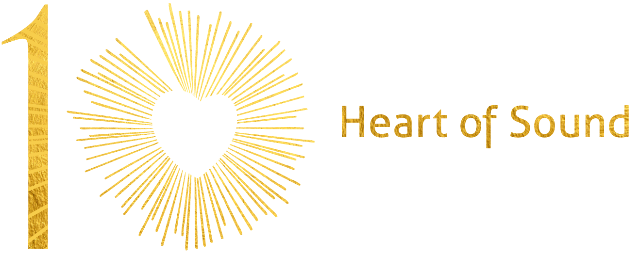10 Educational Standards to Look For in Sound Healing & Mantra Trainings

Are you seeking sound healing training to enhance your practice or professional repertoire? Yay! There are hundreds of sound healing courses available, but not all are created equal!
(If you cringe when someone attends a weekend workshop and then calls themselves a certified sound healer, then the following month they have their own training certification course... this article is for you!)
Here are 10 things to look for in a sound and mantra training!
We've been to LOTS of them, and have addressed some of the common pitfalls and icks that sound healers and mantra lovers complain about in low quality courses.
We hope these 10 features set new standards in educational excellence within the realm of sound and mantra studies! (And yes, we compared Heart of Sound to other courses, because we are certain that there is nothing else like it - certainly not at the high educational standards we offer - in the world!)
10 Things to Look for in a Sound Healing & Mantra Training
(Yes, these are also the Educational Standards of the Heart of Sound 200HR Foundational Sound Healing Yoga course & Advanced 500HR Leadership Training!)
1
Core faculty has 100+ years of combined teaching experience (many online & in person sound trainings are led by folks who recently learned themselves, and have never taught before)
2
Foundations for a lifetime of expressing the language of music and mantra (many chant leader trainings focus on memorizing someone else’s mantra song compositions and performing them)
3
Clear learning objectives that relate to specific student assessment techniques (many sound trainings are offered by performers/practitioners who are great at their art but are not professional teachers of teachers)
4
Specific skills training empowerment (many sound and mantra retreats and courses are full of anecdotes, storytelling, and experiences but little actionable skill to apply the yoga of sound to their own lives and lead others in transformative experiences)
5
Proven pedagogy for teaching accurate Sanskrit sounds pronunciation quickly to anyone from any language background (most trainings fail to address basic sound anatomy at all; many others rely only on mouth-to-ear, which fails to penetrate non-native speakers default mouth positions)
Experience the profound difference when you properly chant using Sanskrit letters and understand "the least you need to know" about Sanskrit to get the most out of your mantra meditation practice.
6
Educational content delivery methods accessible to different types of learners - auditory, visual, kinesthetic (many trainings provide inspiration and encouragement, but lack broad accessibility through varied learning strategies)
7
Constructive 360-degree cohort feedback system based in observation, feelings, needs & requests (many leadership trainings only offer judgmental support, i.e. “good job!” and trainees struggle to consistently repeat - much less improve - desired experiential outcomes)
8
Pedagogy inspired by the Danielson Framework for Educators that supports consistent magic moments (many trainings rely solely on call & response to learn popular repertoire, but do not address all of the components of distinguished professional delivery of sound yoga therapies in the greater sound wellness sector)
9
Empowering learning culture that encourages experimentation of trainees’ unique authentic leadership style (many trainings are limited to a copy-paste approach of imitating the main teacher / religious leader’s style and repertoire)
10
Mistake-friendly learning culture at every level that humanizes the exploration of both new skills & personal transformation (many course models put the teacher on a pedestal, which sets up a painful dynamic of comparison and self-judgment, and a potentially unhealthy power dynamic)
View this post on Instagram
-------------------------------------------
Your NEXT Steps:
- Curious? Browse Courses to get an overview of our offerings, including a bounty of FREE courses!
- Have questions? Not sure what course is right for you? ☎️ Book a FREE 30 min training discovery call to chat!
- Want to experience the Yoga of Sound? Join Anandra for a FREE LIVE Chant Experience. Register here.
- Ready to dive in deep? Explore our FREE Preparatory Course to learn all about the teacher training!
- Want to see if you fit in? Check out our Community to get a glimpse of our Heart of Sound global family.
- Stay informed about our next LIVE events and new courses as they become available - sign up for our email list!
- Get to know Anandra through her IG reels and media appearances.


